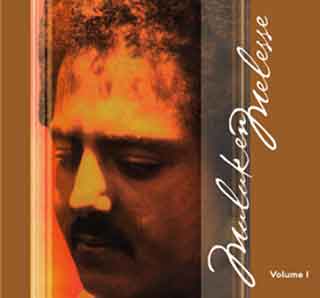[No author has been found yet for the profile.
Please use the contact form below to get in touch with us.]
Life and ministry
Muluken Melesse [ሙሉቀን መለሰ] was born in Gojjam in 1954.
He passed away in 2024.
From Wikipedia.org:
“When he was six, he moved to Addis Ababa with his uncle. In 1966, aged 12, he began his musical career singing at night clubs and in groups founded by night club owners, with his first song to be performed on stage, Enate Sitewoldgne Metchi Amakerchign.
His first song on vinyl was Hedetch Alu, which was recorded in 1972 by Girma Beyene […]. In 1975, he recorded his second song, “Wetetie Mare and Ete Endenesh Gedawo”, with Equator Band. While the rest of the band emigrated to the United States of America, Muluken remained to join the Pentecostal Church in the 1980s, having ended his musical career. While he remained one of the best voices of the Ethiopian 1970s, unlike other performers of the time, Muluken never seems to have been taped by the official state television.
Sometime in the early 1980s Muluken became a born-again Christian, mostly associated with the Ethiopian Evangelical movement. Muluken has supposedly been repeatedly approached to return to his secular music roots but his refusal has, as of April 2018, has been steadfast. Recently he has had some interviews where he decried he was misquoted by magazine editors in Ethiopia. He came out on EBS TV to set the record straight.
Muluken is married and resides in Washington, DC metropolitan area. He ministers by traveling all over the world. Famous songs by Melesse include “Menew Kerefede”, “Yeregeme Lebe”, “Lebo Ney”, “Kumetish Loga New”, “Wedijesh Nebere” and “Tenesh Kelbe Lay”. His song “Nanu Nanu Ney” was an old favorite.”
From AIT Records:
“The incomparable Muluken Melesse was just 13 when he began singing professionally in 1966. He began his career with the Police band and went on to perform with a number of nightclub bands in Addis Ababa, Ethiopia, including The Blue Nile Band, The Zula Band, The Venus Band, The Equators Band, The Dahlak Band, The Roha Band and The Ethio-Stars Band. In 1972, Muluken recorded his first song, Hedetch Alu, on Vinyl. In 1975, he released two of his signature recordings, Wetetë Marë, and Etë Endenesh Gedawo. Backed by the Dahlak, Roha, and Ethio-Stars bands, Muluken has since recorded many hit songs – Lëbo, Akal Gena, and Minew Kerefede, to name just a few. Over the years, many Ethiopian singers have imitated Muluken’s singing style as a show of respect for this legendary performer. In the early 1980’s, Muluken halted his music career and devoted his life to serving God. Although it’s been over 15 years since he last performed, his songs still resonate in the hearts of millions of Ethiopian music lovers, and his fans cling to the hope that he will someday return to the world music scene.”
Albums
(1) “Muluken Melesse Vol. 1”. CD (?) released by AIT Records in Alameda, CA, _ _ _ _ [late 1990s ?].

Songs in hymn book
Wädase Amlak, vol. 4 (1997/98)
- p. 98/99
Connect
» Visit Facebook page committed to the early (!) Muluken Melesse
Audio
» Listen to gospel songs
» Listen to former songs
» Listen to Muluken Melesse’s testimony (13 parts, 2011)
Video
» Watch worship services
» Watch interview (4 parts, 2017)
Documentary
published in 2024: